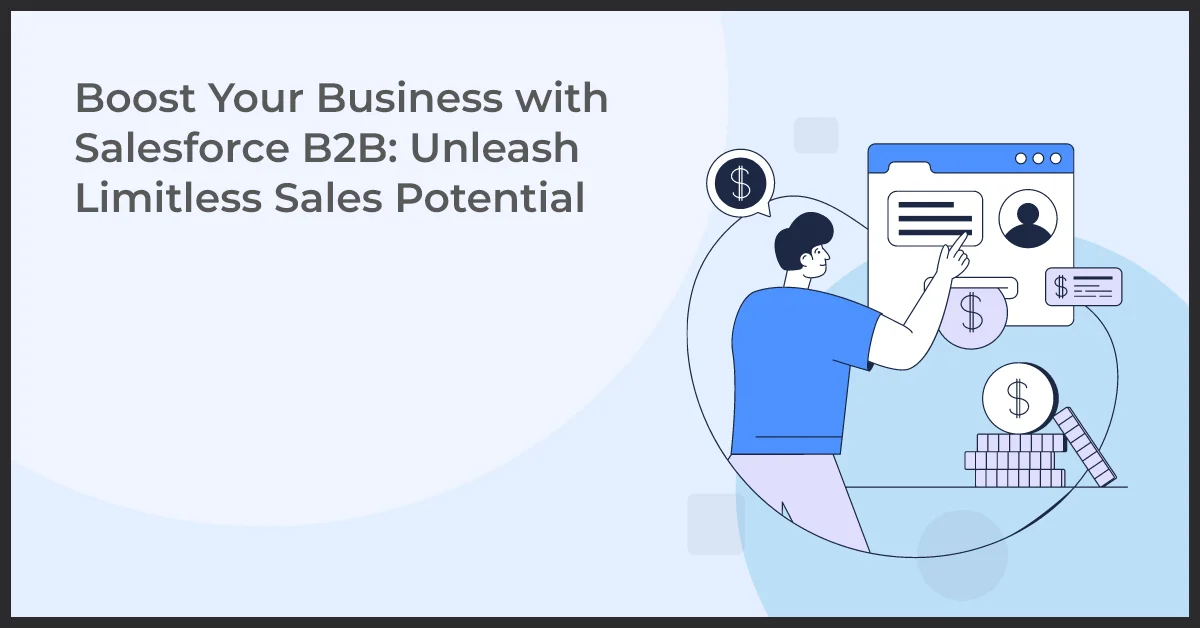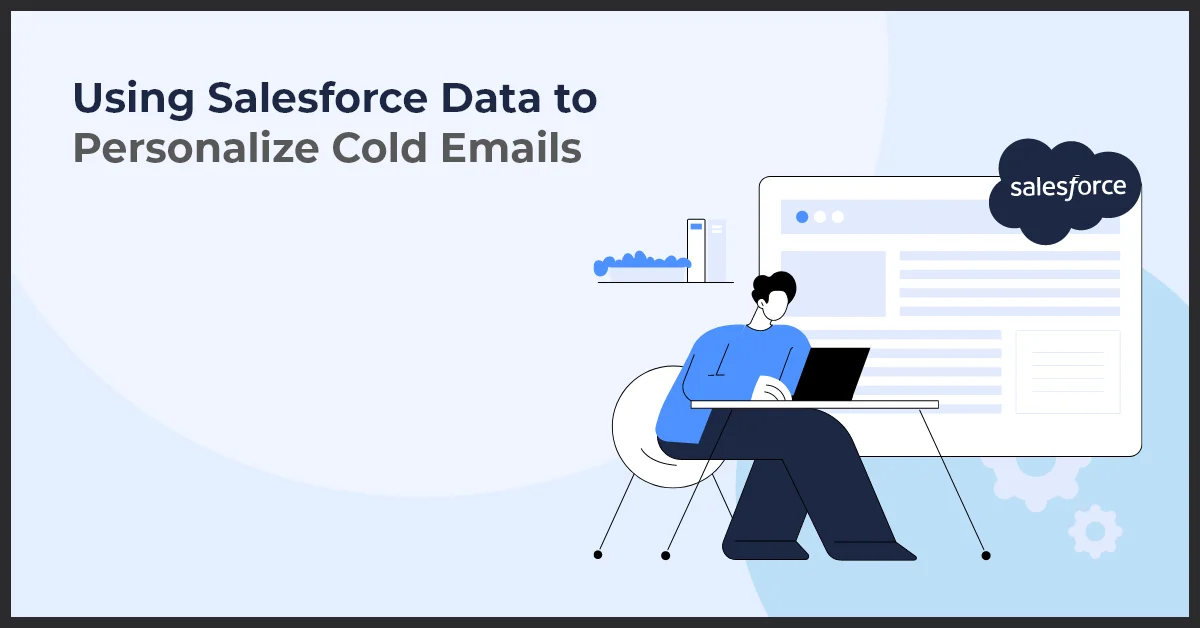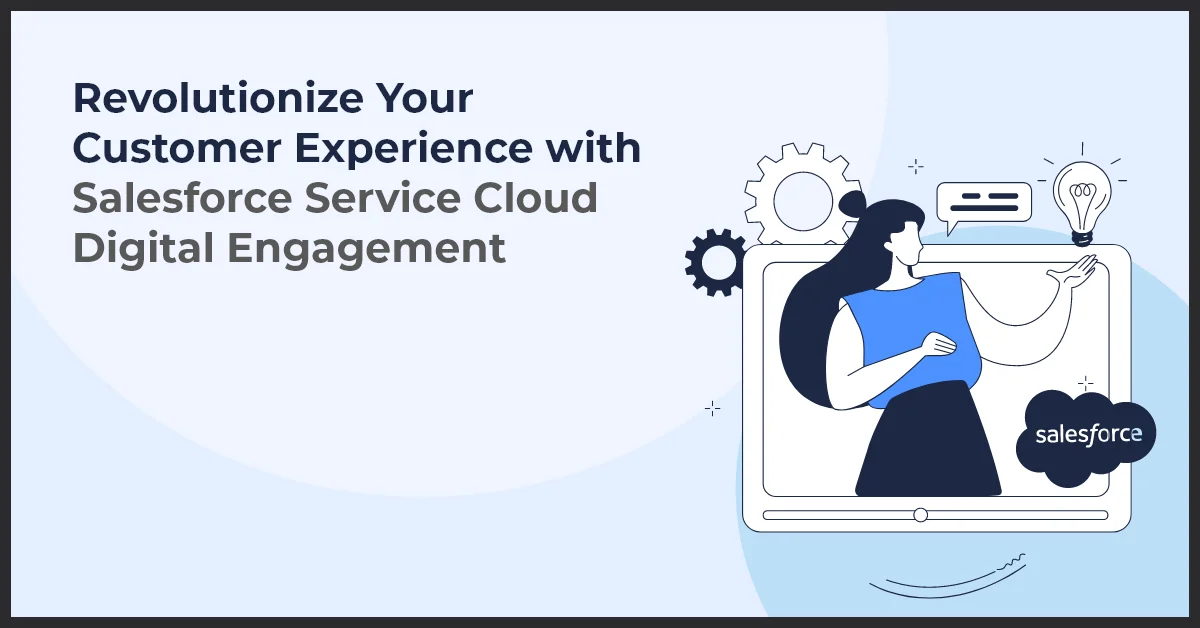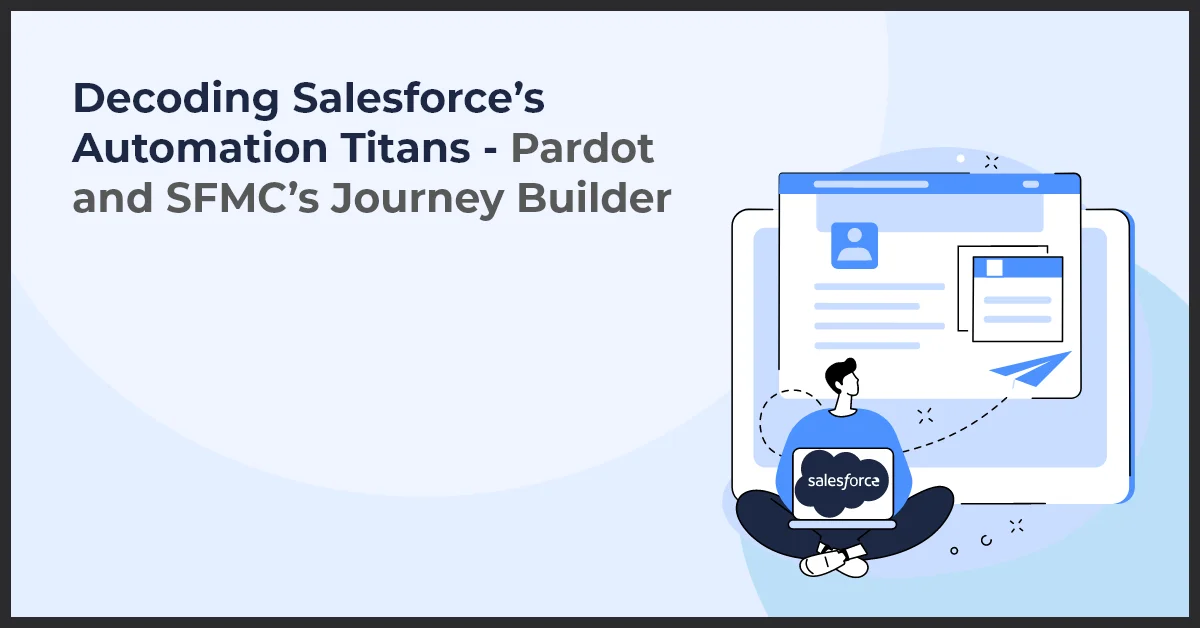Boost Your Business with Salesforce B2B: Unleash Limitless Sales Potential

Published on: November 3, 2023
Updated on: April 17, 2024
653 Views
- Salesforce
11 min read
Are you looking to take your business to new heights and leave your competition in the dust? Look no further than Salesforce B2B, the game-changing solution that can revolutionize your sales processes. In this article, we'll dive into the world of Salesforce B2B, exploring its definition and uncovering why it's become an absolute must-have for businesses worldwide.
Starting with the basics, Salesforce B2B, or Business-to-Business, refers to a cutting-edge technology platform that empowers businesses to streamline and enhance their sales cycles, from lead acquisition to deal closure. Gone are the days of manual spreadsheets and scattered customer data. With Salesforce B2B, your sales team can harness the power of AI-driven automation, centralize customer information, and deliver personalized experiences on a scale unheard of before.
But why is Salesforce B2B so vital for businesses? In today's highly competitive landscape, staying ahead of the curve is critical for success. Salesforce B2B enables businesses to improve their sales effectiveness through intelligent lead prioritization, advanced analytics, and real-time insights - ultimately leading to increased sales and revenue. Not only does it provide a seamless and efficient sales process, but Salesforce B2B also fosters stronger customer relationships, allowing businesses to deliver tailor-made solutions and nurture long-lasting partnerships.
If you're ready to unlock the full potential of your sales force and catapult your business to unprecedented heights, keep reading as we delve deeper into the incredible world of Salesforce B2B.
Understanding Salesforce B2B Commerce
In the world of B2B (business-to-business) commerce, staying ahead of the competition is crucial. Companies need a robust platform that can handle the complex requirements of B2B transactions and provide a seamless buying experience for their customers. This is where Salesforce B2B Commerce comes into play.
A. Definition and Key Features
At its core, Salesforce B2B Commerce is a cloud-based platform designed specifically for B2B businesses to streamline their sales processes, enhance customer experiences, and drive revenue growth. It offers a comprehensive set of features tailored for the unique needs of B2B transactions.
- Overview of Salesforce B2B Commerce and its capabilities: Salesforce B2B Commerce provides businesses with the tools they need to effectively manage their sales operations. It offers features such as product catalogs, pricing and quoting, order management, and inventory tracking. These capabilities enable businesses to handle complex B2B transactions efficiently.
- Benefits of using Salesforce B2B Commerce for B2B businesses: With Salesforce B2B Commerce, businesses can deliver a seamless and personalized buying experience to their customers. This helps in building strong customer relationships, increasing customer satisfaction, and ultimately driving sales growth. Additionally, the platform comes with built-in AI-powered features like predictive recommendations to help businesses increase order values and cross-sell/up-sell opportunities.
B. Customizing Salesforce B2B Commerce
One of the key advantages of Salesforce B2B Commerce is its ability to be customized according to the unique needs of each business. This customization allows businesses to personalize their commerce experience and differentiate themselves from the competition.
- How businesses can personalize their commerce experience: With Salesforce B2B Commerce, businesses can tailor the buying experience for each customer. They can create personalized product recommendations, display relevant content based on customer preferences, and offer customized pricing and promotions. This level of personalization helps businesses build stronger relationships with their customers and increase customer loyalty.
- Importance and impact of customizing Salesforce B2B Commerce for B2B businesses: Customizing Salesforce B2B Commerce is essential for B2B businesses as it allows them to align their commerce platform with their unique business processes, brand identity, and customer expectations. It enables businesses to optimize their sales processes and deliver a consistent and personalized buying experience to their customers.
Salesforce B2B Sales Strategies
A. Account-Based Marketing (ABM) with Salesforce B2B
Account-Based Marketing (ABM) has become a crucial strategy for B2B sales teams seeking to personalize their approach and build stronger relationships with key accounts. With Salesforce B2B, implementing ABM strategies has never been easier.
- Introduction to ABM and its relevance to B2B sales - ABM is a strategic approach that focuses on targeting specific accounts rather than casting a wide net. It aligns marketing, sales, and customer success teams to create personalized experiences for high-value accounts.
- Leveraging Salesforce B2B for implementing ABM strategies - Salesforce B2B provides a robust platform for executing ABM campaigns. Its account-based marketing features enable users to segment accounts, personalize communications, and track engagement.
- Best practices and examples of successful ABM campaigns using Salesforce B2B - Through Salesforce B2B, businesses have achieved remarkable results with their ABM campaigns. Case studies and success stories demonstrate how companies have increased account engagement, generated more qualified leads, and closed bigger deals.
B. Lead Generation and Management
Effective lead generation and management are critical for driving revenue growth. Salesforce B2B offers a wide range of tools and features to help businesses capture and nurture leads efficiently.
- Strategies for effectively capturing and nurturing leads in Salesforce B2B - Learn proven methods for attracting and converting leads into qualified prospects. Salesforce B2B enables businesses to create customized lead forms, automate lead routing, and implement personalized nurturing campaigns.
- Utilizing Salesforce B2B to automate lead management processes - Manual lead management can be time-consuming and error-prone. With Salesforce B2B, businesses can streamline lead management processes by automating lead assignment, tracking conversions, and implementing lead scoring algorithms.
- Tips for optimizing lead generation and management with Salesforce B2B - Unlock the full potential of Salesforce B2B for lead generation and management. Discover tips and tricks for maximizing lead quality, increasing conversion rates, and improving overall lead management efficiency.
C. Pipeline Management and Forecasting
Managing sales pipelines and accurately forecasting revenue are crucial for maximizing sales performance. Salesforce B2B offers powerful features to track and analyze pipeline data, aiding in informed decision-making.
- Importance of tracking and managing sales pipelines in Salesforce B2B - A well-managed sales pipeline allows sales teams to prioritize and focus on the most promising opportunities. Salesforce B2B provides a centralized platform to track pipeline stages, forecast revenue, and identify sales bottlenecks.
- Key features and functionalities of Salesforce B2B for pipeline management - Explore the various tools and features within Salesforce B2B that facilitate effective pipeline management. From visualizing pipeline stages to collaborating with team members, Salesforce B2B empowers sales teams to stay organized and drive revenue.
- Best practices for accurate sales forecasting using Salesforce B2B - Accurate sales forecasting enables businesses to make smarter decisions and allocate resources effectively. Discover best practices for leveraging Salesforce B2B's forecasting capabilities, including setting realistic goals, analyzing historical data, and aligning sales and finance teams.
D. Sales Analytics and Reporting
Data-driven insights are crucial for optimizing sales strategies and identifying areas for improvement. Salesforce B2B provides robust analytics and reporting capabilities to derive valuable metrics and track sales performance.
- Leveraging Salesforce B2B for sales analytics and reporting - Salesforce B2B offers a wide array of analytics and reporting tools to measure sales performance, track pipeline trends, and analyze customer behavior. Uncover actionable insights to fuel data-driven decision-making.
- Key metrics and insights available through Salesforce B2B - Discover the essential metrics and insights that Salesforce B2B provides to evaluate sales effectiveness and measure ROI. From conversion rates to customer lifetime value, Salesforce B2B's analytics capabilities enable businesses to make informed decisions.
- Tips for creating comprehensive sales reports and dashboards using Salesforce B2B - Effective reporting and dashboards are essential for visualizing sales data and sharing insights with stakeholders. Learn tips and tricks for creating compelling reports and interactive dashboards using Salesforce B2B's reporting capabilities.
Salesforce B2B and Customer Service
Enhancing Customer Experiences with Salesforce B2B
When it comes to B2B businesses, customer service plays a crucial role in building strong relationships and driving customer satisfaction. With Salesforce B2B, you can take your customer service to new heights.
- How Salesforce B2B can improve customer service in B2B businesses
Salesforce B2B offers a range of features and tools designed to enhance customer service in B2B businesses. With its robust CRM capabilities, you can easily track and manage customer interactions, resolve issues quickly, and provide personalized support.
- Efficient case management: Salesforce B2B allows you to effectively manage customer cases by assigning and tracking them, ensuring timely resolution and customer satisfaction.
- 360-degree view of customers: With Salesforce B2B, you can have a complete view of your customers, including their purchase history, preferences, and previous interactions, enabling you to provide personalized and proactive service.
- Self-service portal: Salesforce B2B provides a self-service portal where customers can find answers to commonly asked questions, troubleshoot issues themselves, and submit support requests.
- Real-time collaboration: The platform facilitates real-time collaboration among your customer service teams, enabling them to share information, resolve issues quickly, and provide a seamless customer experience.
Integration with Salesforce B2B
Salesforce B2B seamlessly integrates with Salesforce, further enhancing your customer service capabilities.
- Exploring the integration capabilities of Salesforce B2B
The integration of Salesforce B2B allows for seamless data flow between the systems, enabling your customer service teams to access customer information, order history, and other relevant data from both platforms.
- Benefits and advantages of connecting with Salesforce B2B
The integration of Salesforce B2B offers several benefits, including:
- Increase efficiency: By connecting the two platforms, you can eliminate manual data entry, reduce errors, and streamline processes, ultimately improving the efficiency of your customer service operations.
- 360-degree customer view: Integration enables you to have a comprehensive view of your customers across both platforms, empowering your customer service teams to provide personalized and targeted support.
- Automated workflows: With integration, you can automate various customer service workflows, such as case creation, assignment, and escalation, ensuring timely and efficient issue resolution.
- Centralized data: Integration brings all customer data into one centralized location, making it easier for your teams to access and utilize the information effectively.
Salesforce B2B vs B2C
Key differences between Salesforce B2B and B2C
While both Salesforce B2B and B2C platforms offer powerful tools for managing customer relationships, there are key differences between the two:
- Target audience: Salesforce B2B is designed for businesses that primarily sell products or services to other businesses, while B2C is geared towards businesses that sell directly to consumers.
- Complexity: B2B sales cycles are typically longer and more complex than B2C, involving multiple decision-makers and negotiations. B2C sales, on the other hand, are often based on impulse purchases or emotional drivers.
- Personalization: B2B sales involve building long-term relationships with customers, requiring greater personalization and customizability. B2C sales may focus more on creating a seamless, user-friendly shopping experience.
- Order quantities: B2B transactions generally involve larger order quantities and custom pricing structures, while B2C purchases tend to be smaller and priced at a fixed rate.
Considerations and best practices for adopting Salesforce B2B in B2C businesses
Although Salesforce B2B is primarily designed for B2B businesses, it can still be adopted by B2C businesses with the right considerations and best practices:
- Segmentation: B2C businesses need to segment their customer base and tailor their marketing strategies accordingly. This includes identifying target customer segments, creating personalized marketing campaigns, and leveraging customer data effectively.
- E-commerce platform integration: B2C businesses may need to integrate their existing e-commerce platforms with Salesforce B2B to enhance their online customer experience. This includes synchronizing order data, product catalogs, and pricing information.
- Streamlining customer service: B2C businesses can leverage Salesforce B2B's customer service tools to provide efficient and effective support. This includes integrating customer support channels, such as live chat or social media, and empowering customer service agents with relevant customer data.
- Reporting and analytics: B2C businesses can utilize Salesforce B2B's reporting and analytics capabilities to gain insights into customer behavior, track marketing campaign performance, and make data-driven decisions that drive business growth.
By carefully considering these factors and adopting best practices, B2C businesses can leverage Salesforce B2B to enhance their sales and customer engagement strategies.
Conclusion
When it comes to B2B sales, Salesforce B2B Commerce is a powerful tool that can transform your business. By understanding and implementing Salesforce B2B Sales Strategies, utilizing Salesforce B2B for customer service, and tailoring it to custom item businesses, you can take your sales and customer interactions to new heights.
However, it's important to remember that Salesforce B2B is not just a one-time solution. It requires continuous optimization and customization to suit your business needs. Regularly analyzing data and making adjustments will ensure you stay ahead in the competitive B2B landscape.
To leverage Salesforce B2B effectively, consider partnering with a Salesforce expert who can guide you through the implementation process and provide ongoing support and training. With the right expertise and dedication, you can unlock the full potential of Salesforce B2B and drive success for your business.



